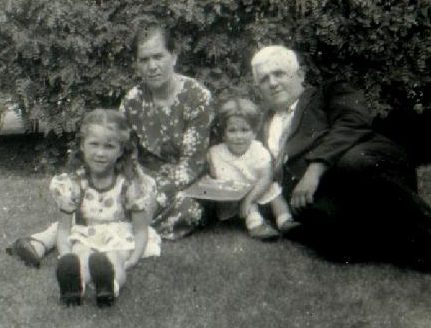COLUMN: Tales from the Gravel Ridge – The power of hope
Advertisement
It’s that time of year when, whether we like it or not, we are closing something like a door behind us, and in the process that closed door opens a new viewpoint, and in fact new beginnings for us. Our calendar certainly reminds us of this reality, and the very fact that the daily hours of sunlight are gradually lengthening, confirms it.
There is a measure of confirmation in this concept, and indeed, in the reality of new beginnings. Perhaps we are full of hope that the future will be fulfilling, not only for us as individuals, but also for those in our own circle of influence, be it family, or perhaps our community, and beyond our immediate area of responsibility.
It may well be that we are quite willing, in fact, we may be anxious to close the door, figuratively, of the immediate past, hopeful that the future will bring a healing balm to ease our sense of despair. There must surely be many in our world today who are desperately looking for such a healing consolation.

When my parents, Cornelius and Katharina Falk, along with their three young children, left their home in Schoeneberg, now Smolyane, in Ukraine, in December, 1928, they must have been hopeful of a better life in Canada, after the political turmoil they had experienced in their homeland. Their sense of hope was severely tested along the way, and when my family finally crossed the border into Latvia at the end of the year, they must have breathed a sigh of relief, hopeful that the remainder of their journey would be uneventful. There were more delays, but there was always a glimmer of hope, in Riga, Latvia, and again in Antwerp, and eventually in Liverpool where they boarded the SS Melita, and began the long voyage across the North Atlantic. Even when my family landed in St. John, New Brunswick, their journey wasn’t over. The children, along with others onboard ship had contracted the measles and were placed in quarantine along with the mothers, but even then the fact that they had safely crossed the North Atlantic, stormy weather notwithstanding, revived their hope of a brighter future for them.
The first years in Canada for my family coincided with the worldwide depression of the 1930s, and life had been challenging many times. But there was always hope that these difficulties too could be overcome.
When my father and Julius Block signed the documentation for the sale of the Block family homestead to my family in 1938, my parents must again have been hopeful that things would go well for them. And indeed, they did. Later, for the first two decades of my life, the community of Rosengard was my home. Even when I left the community in pursuit of education and employment, I still regularly returned to my home on the Rosengard gravel ridge.
In hindsight, I recognize and acknowledge that the solidarity provided by the community of my childhood and youth, extending as well to the surrounding area, fostered in me in the context of my family, a sense of security. It was much easier for families in a supportive community to be hopeful of the future, even in times of loss and bereavement. No one was ever entirely alone even under difficult circumstances.
I have lived within a civil society in the land of my birth throughout my life. It is becoming increasingly obvious that this stability and these freedoms are fragile, and that they must never be taken for granted, if the next generation is to flourish. And in that context we must never lose hope.
Emily Dickinson’s poetry comes to mind:
“Hope” is the thing with feathers
by Emily Dickinson
“Hope” is the thing with feathers –
That perches in the soul –
And sings the tune without the words –
And never stops – at all –
And sweetest – in the Gale – is heard –
And sore must be the storm –
That could abash the little Bird
That kept so many warm –
I’ve heard it in the chillest land –
And on the strangest Sea –
Yet – never – in Extremity,
It asked a crumb – of me.
